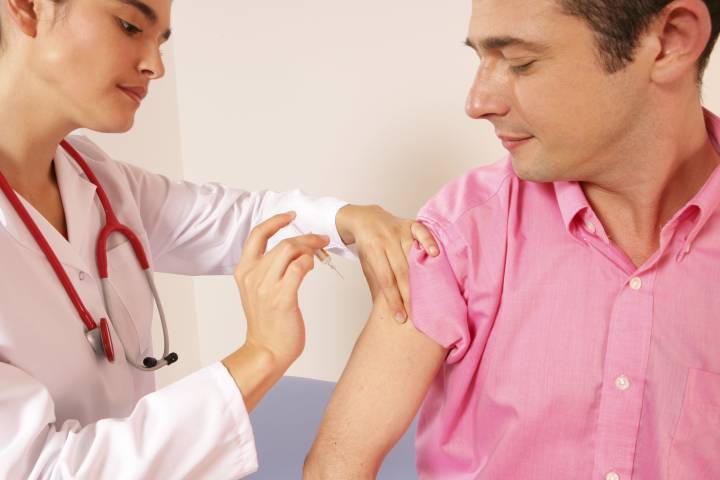A hot flashes in women is a feeling of intense heat, not caused by external sources. Hot flashes can appear suddenly or you may feel them coming on. You may experience tingling in your fingers, your heart beating faster than usual, your skin feeling warm suddenly, your face getting red or flushed, sweating, especially in the upper body.
Hot flashes often come on suddenly, but how long any single hot flash lasts will vary. Some hot flashes pass after a few seconds, while a long hot flash may go on for more than 10 minutes. On average, hot flashes last about four minutes. The frequency of hot flashes also varies. Some women experience a few hot flashes per week, while others may have several hours. Depending on where you are in perimenopause; this can change. There is a range of treatments and lifestyle changes that may help lessen the symptoms and frequency of your hot flashes.
Read More: coping with hot flashes
A Guide for Hot Flashes in Women
Symptoms of hot flashes in women
During a hot flash, you might have:
- A sudden feeling of warmth spreading through your upper body and face
- A flushed appearance with red, blotchy skin
- Rapid heartbeat
- Perspiration, mostly on your upper body
- A chilled feeling as the hot flash lets up
Hot flashes can vary in frequency and intensity. How long symptoms last varies greatly. On average, symptoms persist for more than seven years. Some women have them for more than 10 years.
Causes of hot flashes in women
Prescription medicines
Hot flashes are a side effect of many common prescription drugs. Opioids, antidepressants, and some osteoporosis drugs are a few of the common medication triggers. Start looking for symptoms soon after starting a new course of medication. If they coincide, you’ll know that’s probably the cause.
Excess weight
By now you’ve probably heard that body fat is metabolically active, which helps explain the links between obesity and some cancers. And because excess weight can mess with your metabolism, it can also promote hot flashes.
Food allergies or sensitivities
Almost all of us experience something like a hot flash when we eat very spicy foods. But if you have an unidentified food allergy or intolerance, something else in your diet could be the cause.
Anxiety
While you’ll often hear the words “stress” and “anxiety” used interchangeably, mental health experts tend to use the term “anxiety” to refer to the physical side of emotions like stress, fear, or worry. A racing heart and nervous fidgeting are two of the classic anxiety symptoms. And feeling anxious can also set off uncomfortable symptoms.
Medical conditions
Almost any medical problem related to your hormones or endocrine system could lead to menopause-like symptoms. In particular, thyroid issues, especially an overactive thyroid could explain your bouts of feeling warm. Infections or viruses can also cause them.
A hot bedroom
Your body temperature naturally fluctuates throughout the night. So it’s common for women to wake up in the middle of the night feeling overheated or sweaty.
Menopause
Menopause is perhaps one of the major causes behind hot flashes, with hot flashes being indicative of its nearing date.
Read More: 11 Natural Ways to Postpone Menopause Before it’s Too Late
Treatment for hot flashes in women
Some women can wait out hot flashes with no treatment. If they’re bothersome or causing trouble for you, talk to your doctor about taking hormone replacement therapy, or hrt, for a limited time, typically less than 5 years. This prevents hot flashes for many women. Plus, it can help other symptoms of menopause, including vaginal dryness and mood disorders. When you stop taking hrt, the hot flashes may come back. Some short-term hrt can make you more likely to have blood clots, breast and endometrial cancers, and gallbladder inflammation.
If HRT isn’t right for you, other treatments may offer relief. Prescription treatments include:
- Low-dose depression drugs like fluoxetine (prozac, rapiflux), paroxetine (paxil, pexeva), or venlafaxine (effexor)
- Clonidine, a blood pressure medication
- Gabapentin, an anti-seizure drug
- Brisdelle, a paroxetine formula specifically for hot flashes
- Duavee, a conjugated estrogens/bazedoxifene formula designed to treat hot flashes
B complex vitamins, vitamin e, and ibuprofen may help, too. It’s important to talk to your doctor before you take any new medication or supplements, including over-the-counter products.
Read More: Home Remedies to Ease the Symptoms of Perimenopause
Prevention for hot flashes in women
What you can really do is to follow certain home remedies. Stay cool. At night, a “chill pillow” filled with water or other cooling material might help. Use fans during the day. Wear lightweight, loose-fitting clothes made with natural fibers such as cotton.
Try deep, slow abdominal breathing (6 to 8 breaths per minute). Practice deep breathing for 15 minutes in the morning, 15 minutes in the evening, and when a hot flash starts.
Exercising daily, walking, swimming, bicycling, and dancing are all good choices.
Plant estrogens, found in soy products, may have weak estrogen-like effects that could cut hot flashes. Doctors recommend you get your soy from foods like tofu and edamame rather than supplements. Some studies suggest black cohosh may be helpful for 6 months or less. Botanicals and herbs may have side effects or change how other medications work, so ask your doctor first.
Read More: Perimenopause: Signs and Symptoms













